Commercial SERIES • Project FEATURE
Time as Testimony – Natalia Hogar by SETarq in collaboration with Fruto Arq
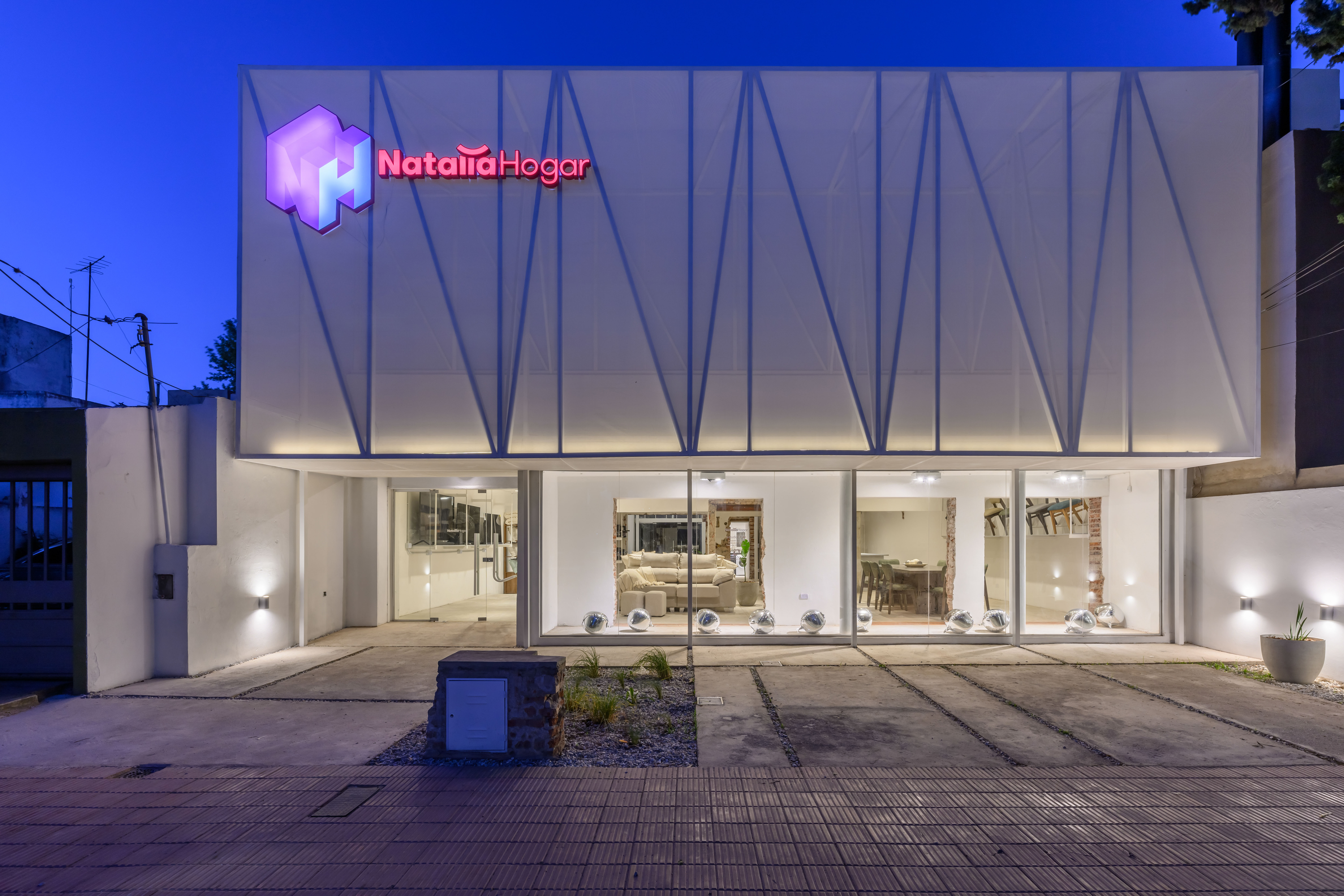
It is a poetic intervention that embraces the wear of time with a contemporary sensitivity. Every uncovered wall, every exposed texture, and each architectural decision speaks to the building’s memory, creating a space that is not only inhabited but also contemplated.
Natalia Hogar is born from a powerful premise: to intervene without erasing. SETarq, in collaboration with Fruto Arq, undertook the challenge of recovering a dilapidated home and transforming it into a commercial space with strong identity and urban awareness. Rather than imposing a superficial aesthetic or forcing a narrative, the team chose to amplify what was already there: the imperfect, the unfinished, the authentic. What might once have been considered decay is redefined as visual and emotional heritage. From the outset, the project adopts a posture of reverence toward the existing structure. Design decisions are not meant to cover or correct but to reveal and preserve. The original building is kept as found: with incomplete plaster, exposed masonry, and visible utilities. This material honesty becomes the thread that guides the entire intervention. The traces of time are not only preserved but become protagonists in a spatial narrative that weaves together history and modernity with extraordinary finesse.
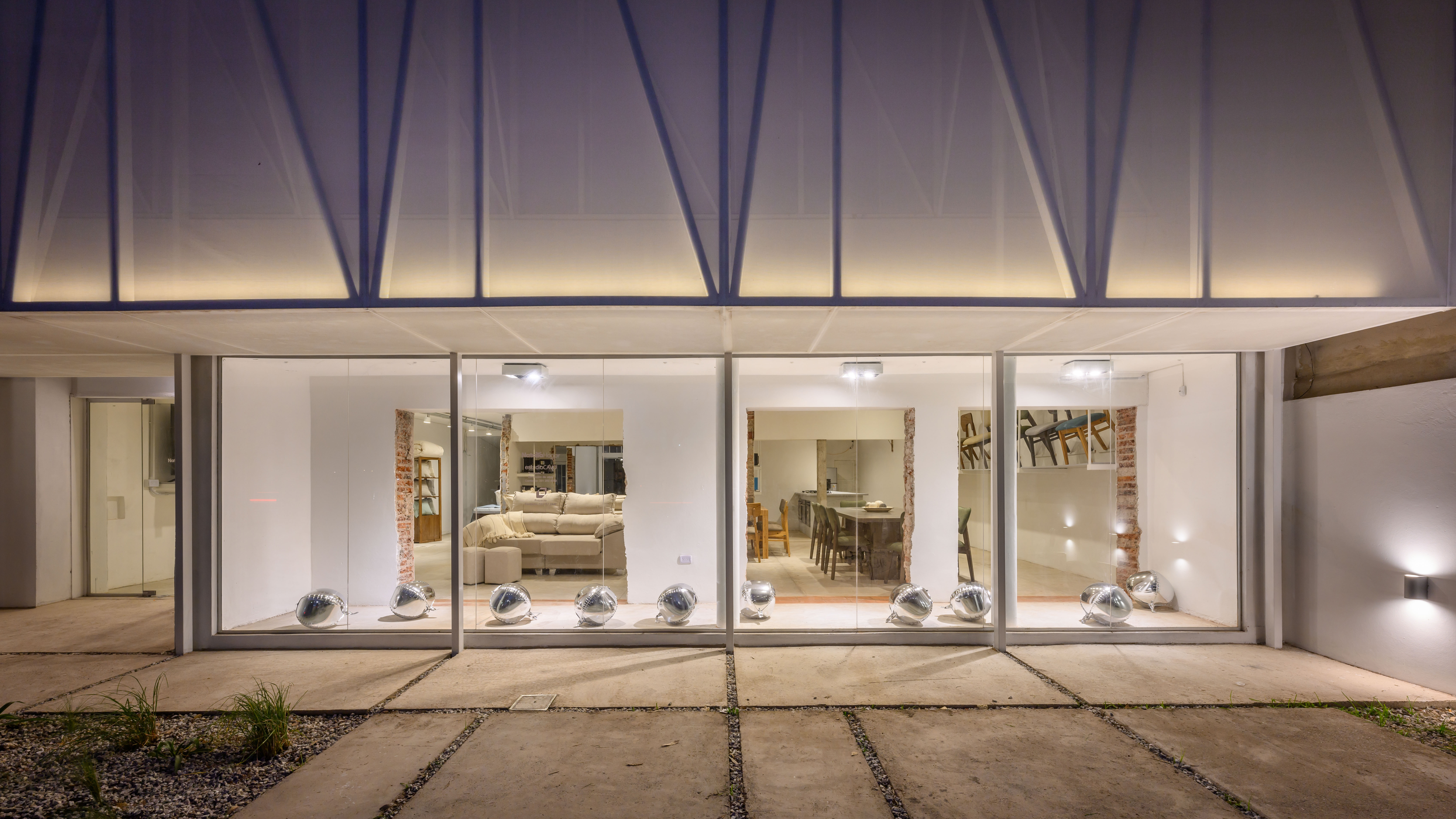
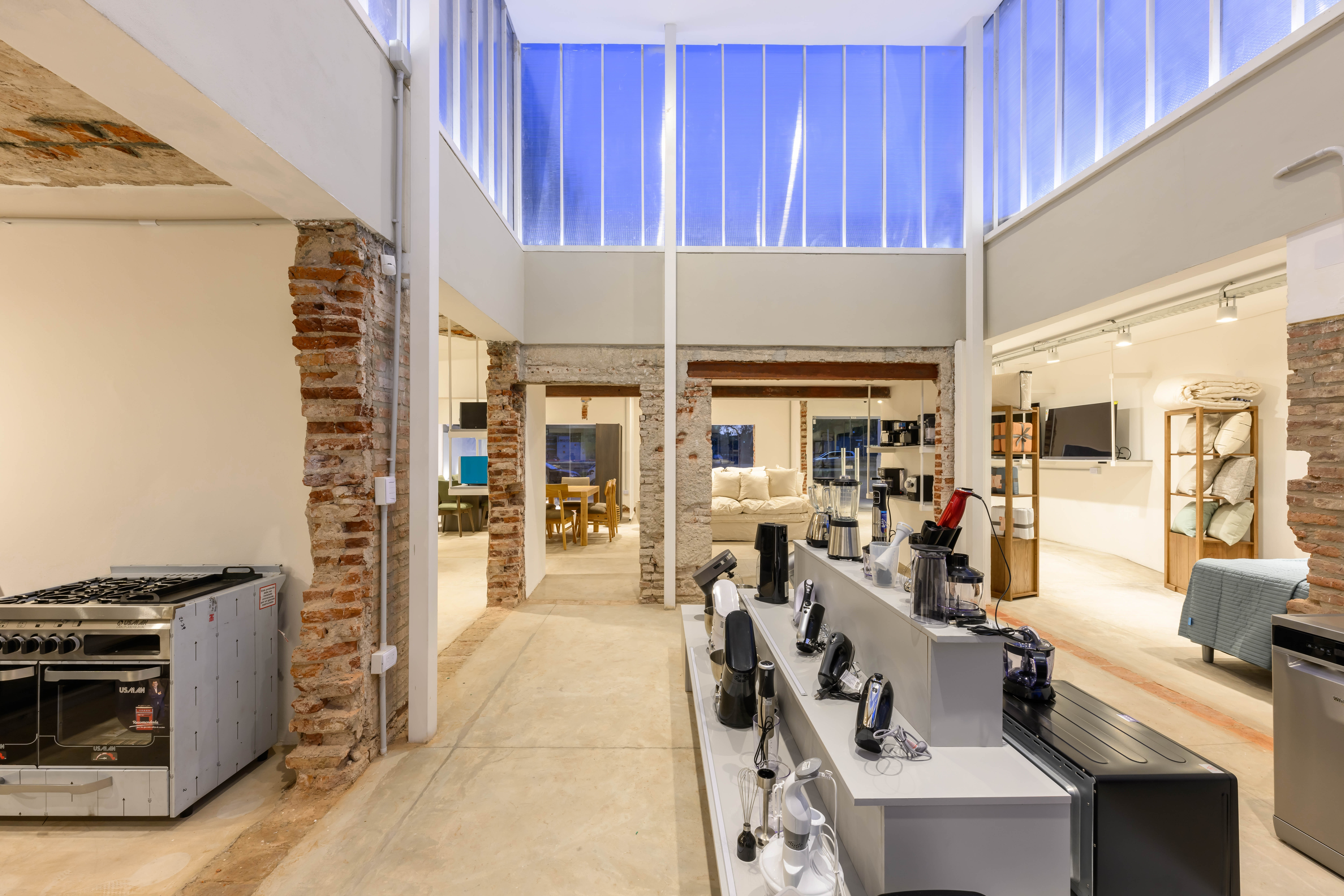
"Surrounded by the memory of time, we chose to let it speak. That is why every imperfection became part of the design."
Yet the intervention does more than preserve—it also incorporates new elements that enrich the architectural dialogue. Modular metal structures and translucent enclosures, conceived as light extensions of the original space, represent the contemporary language of the proposal. These lightweight and versatile pieces contrast with the solidity of the original building without overpowering it. Their swift and economical execution reinforces the conceptual coherence of the project: to do more with less, without compromising aesthetic depth. One of the most significant decisions was the selective demolition of interior partitions. Far from being a purely functional move, this strategy opened up the floor plan, created a fluid circulation, and enhanced the user experience. Perhaps most notably, the marks left by these demolitions were not concealed. They remain visible—as evidence of process, as scars that tell a story. This narrative of change and transformation becomes an essential part of the store’s atmosphere.
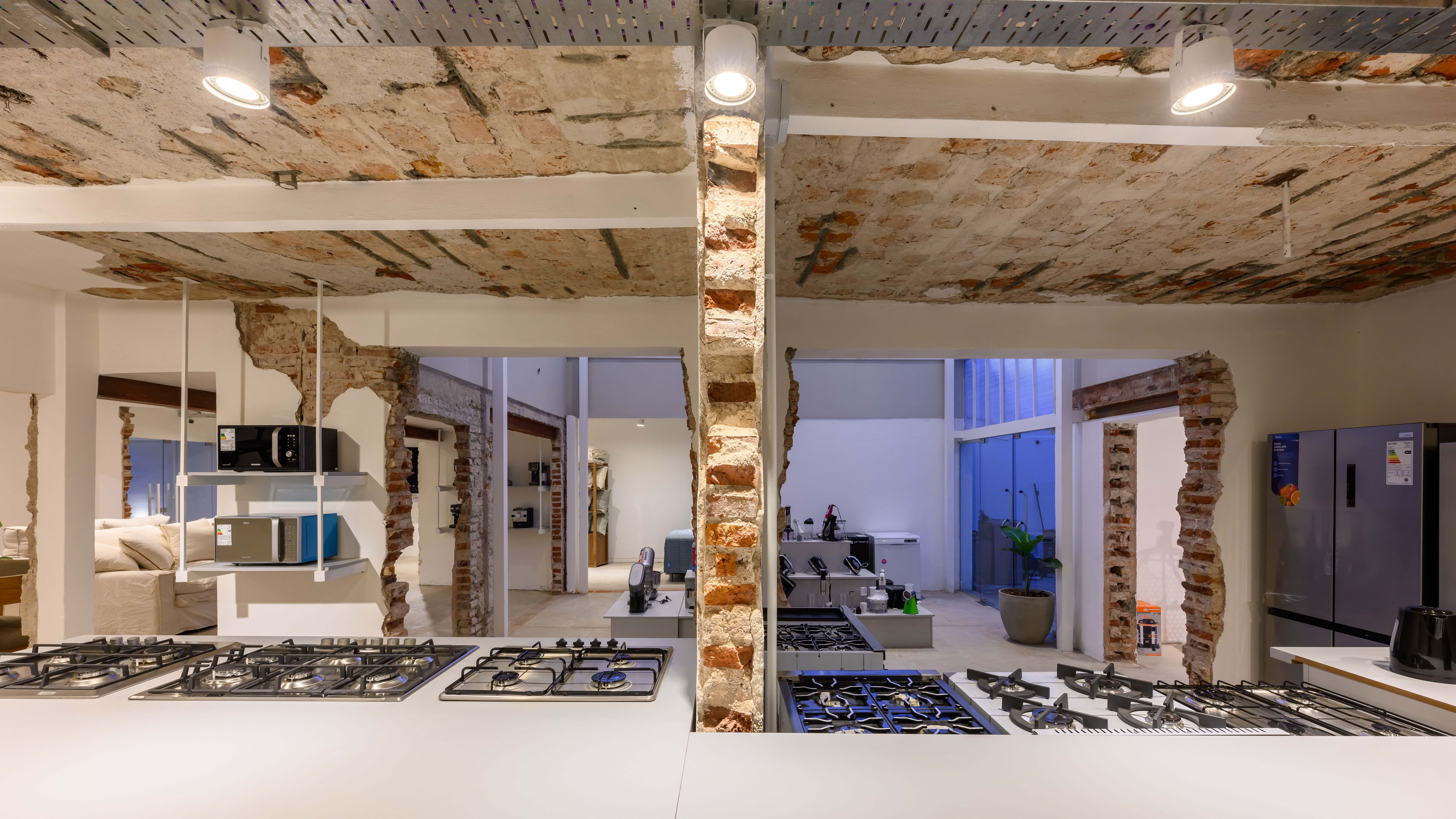
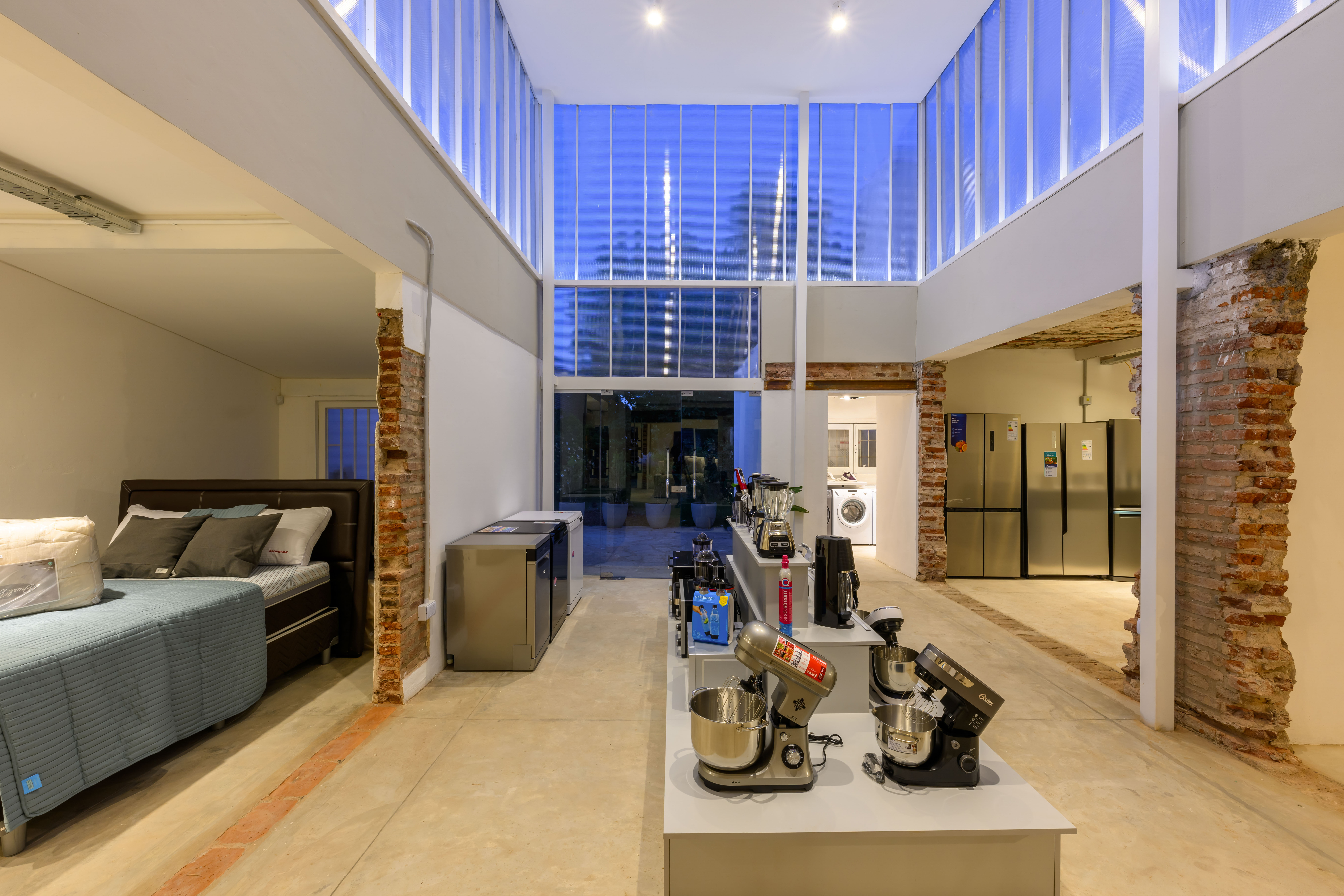
Natalia Hogar’s urban presence is redefined through two precise and memorable exterior interventions. The first, placed on the façade, is a suspended, backlit prism. Known as a “capuchón,” this volume acts as a signature gesture: it commands attention without extravagance, reconfigures the building’s silhouette, and subtly suggests from the outside that something different awaits within. The second intervention, located in the former courtyard, transforms that leftover space into a bright interior patio. The translucent structure allows diffused natural light to enter, enhancing the spatial quality and visual connection between different project areas. This move not only revives a forgotten part of the property but also introduces a contemplative and serene dimension to the experience of the space.
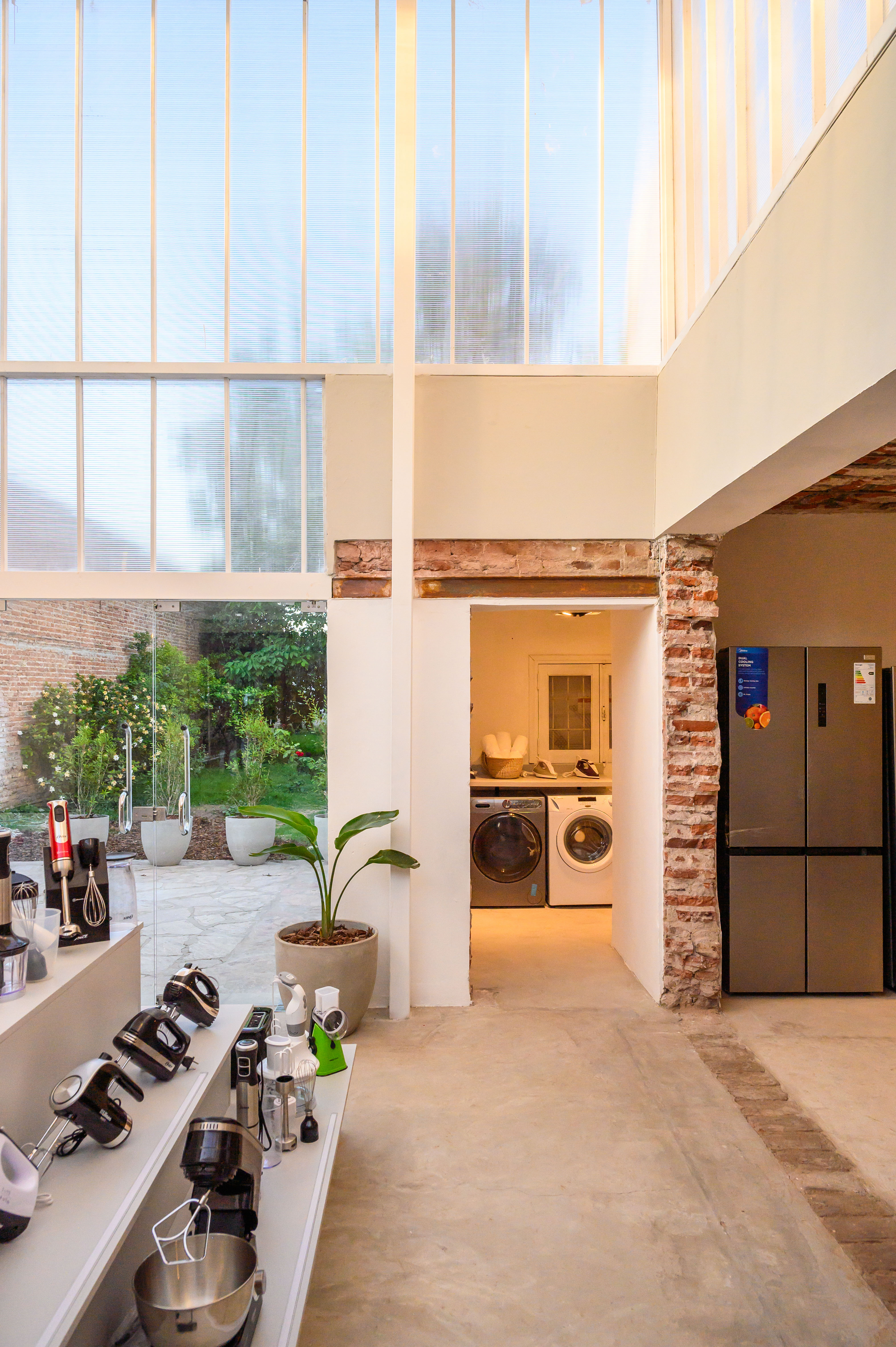
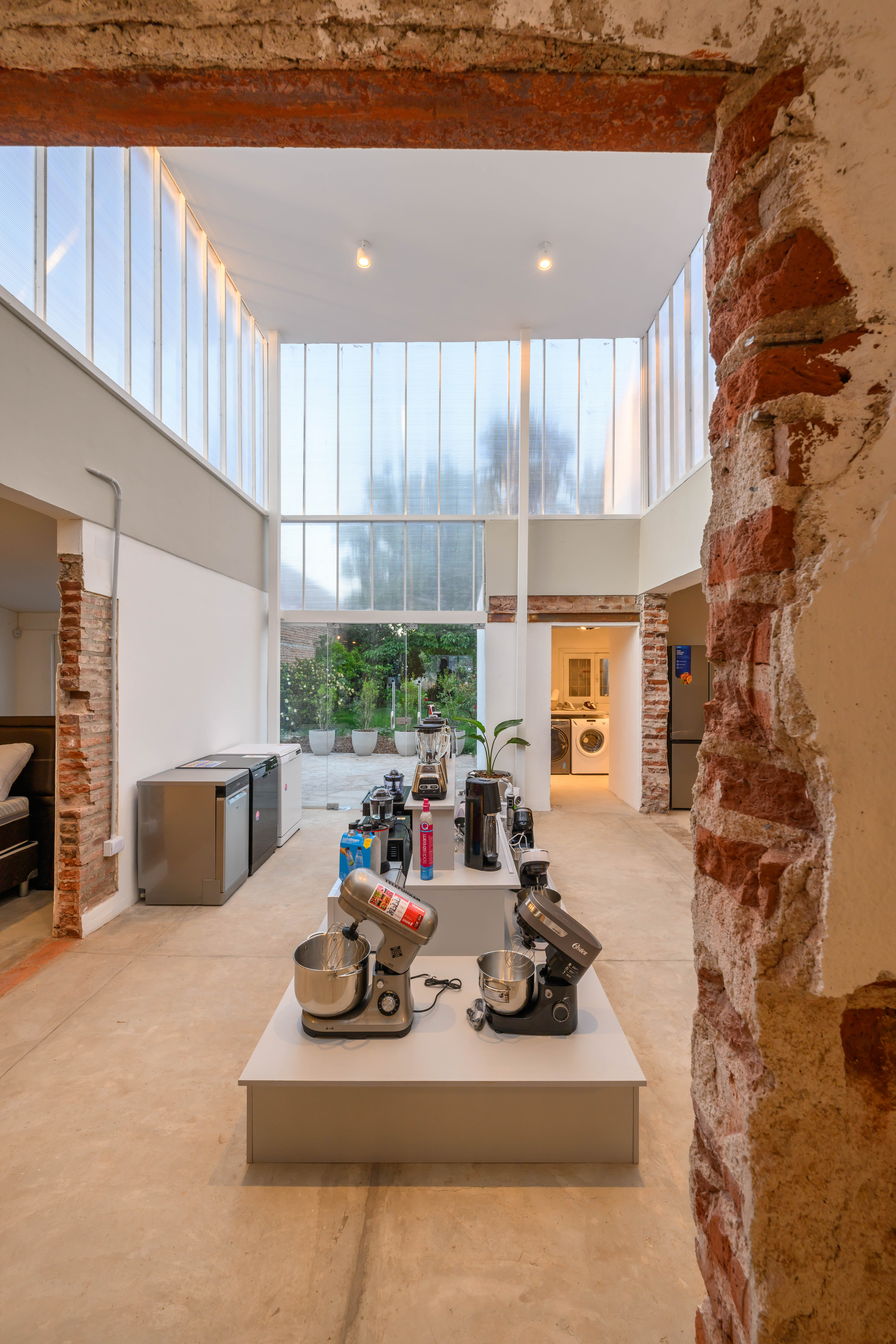
"We build not to erase the past, but to give it a new voice—one that resonates with today’s rhythms and tomorrow’s possibilities."
By day, these volumes act as luminous filters, generating a serene, timeless atmosphere. By night, their soft, glowing presence turns the building into a kind of urban beacon. It becomes a landmark, recognizable from a distance, contributing distinct character to its surroundings without relying on gimmicks. Architecture becomes a tool of urban communication.
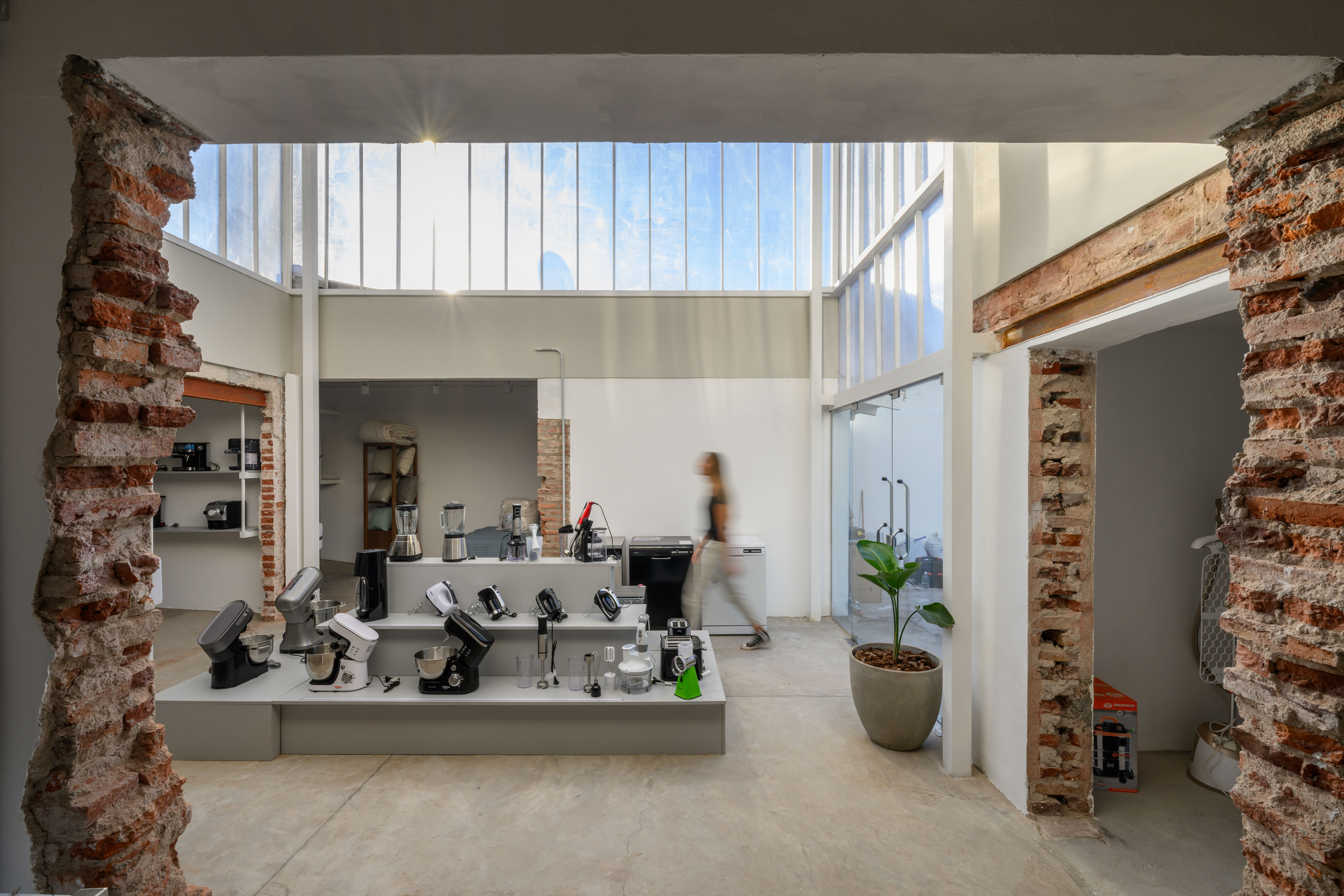
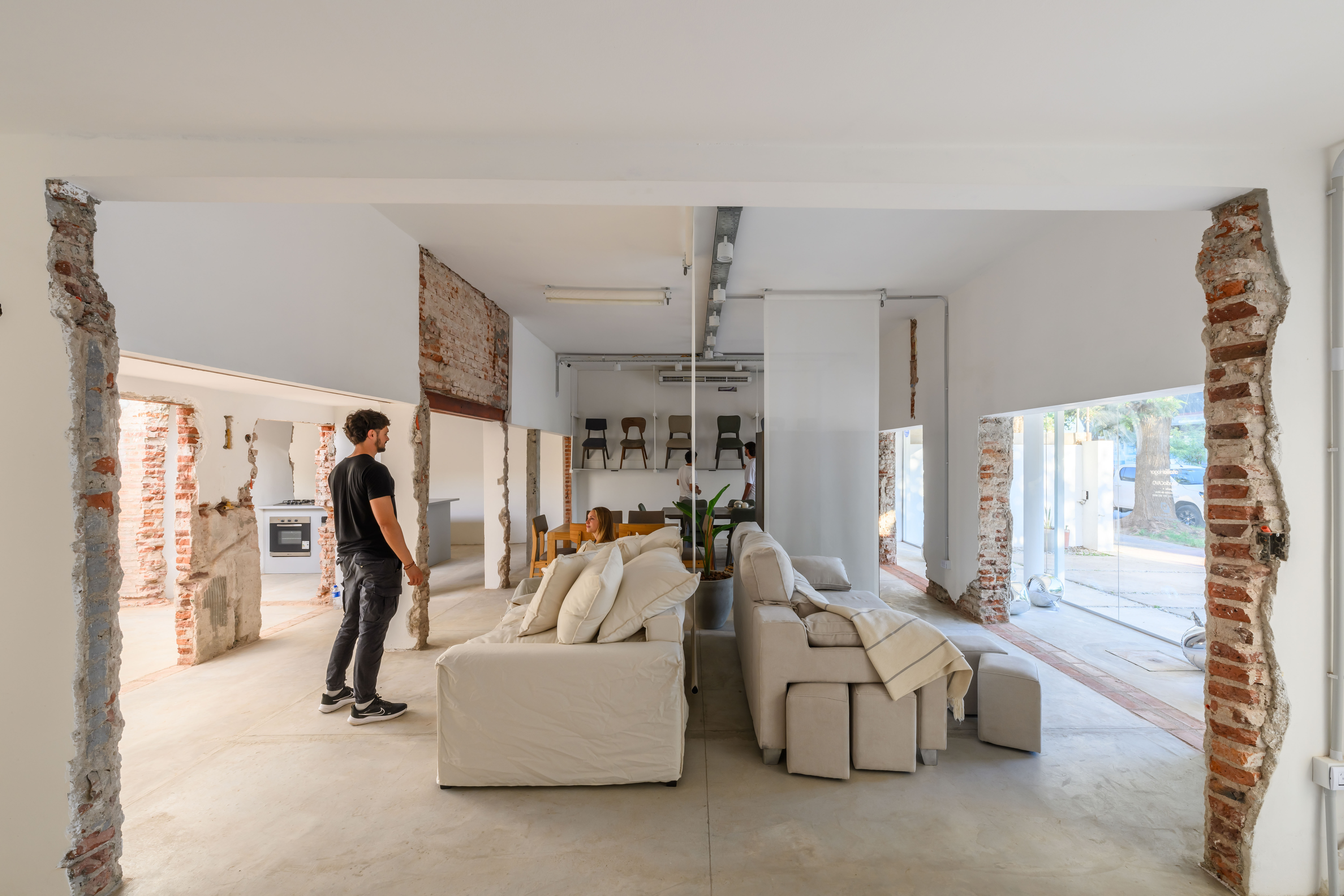
The interior follows a minimalist and honest logic. With a restrained material palette and few elements, the space lets the displayed objects take center stage. The installations are left exposed—not as a sign of neglect, but as part of the project’s material language. This raw yet deliberately articulated aesthetic answers both a conceptual vision and a practical need: efficiency, economy, and functional clarity.
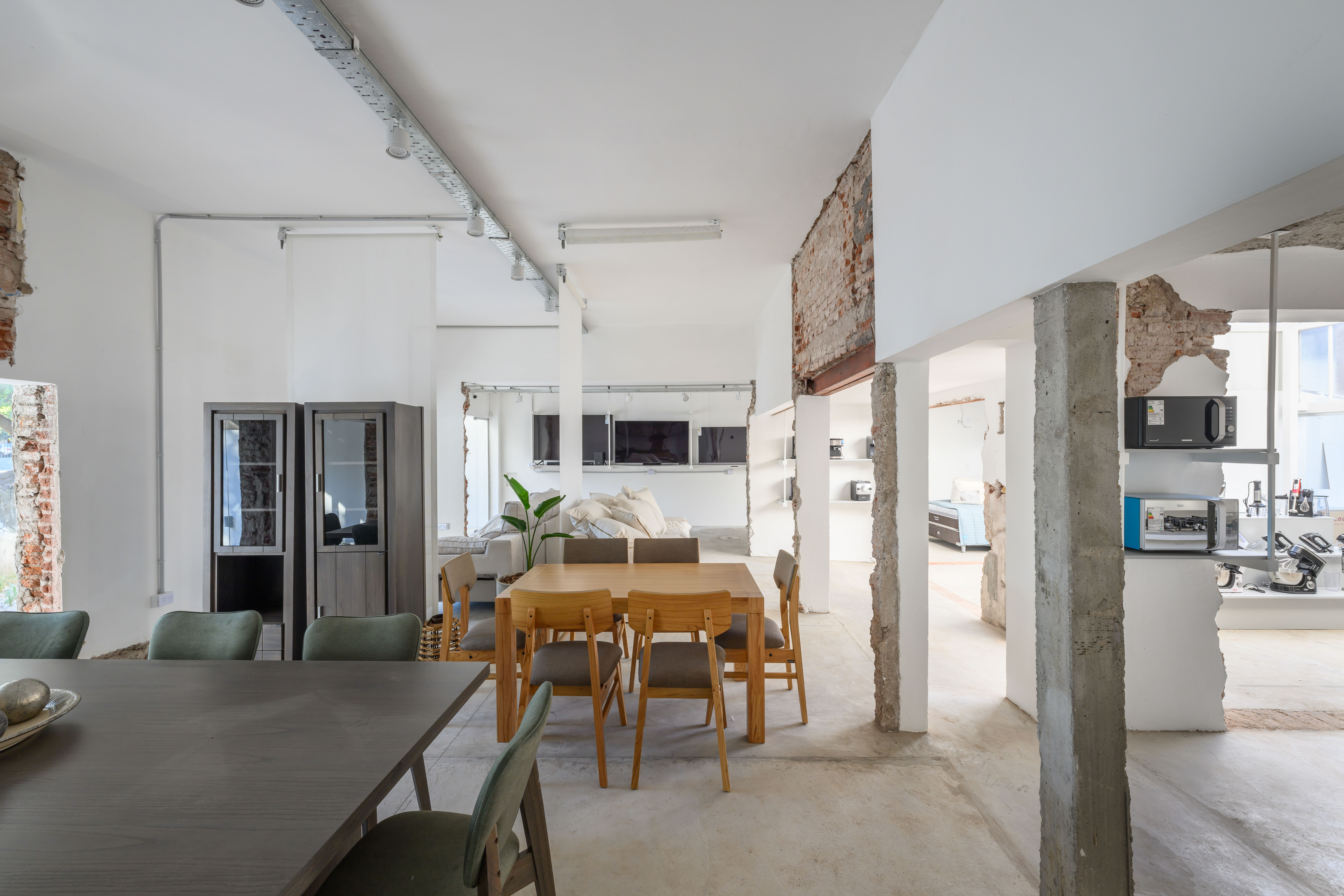
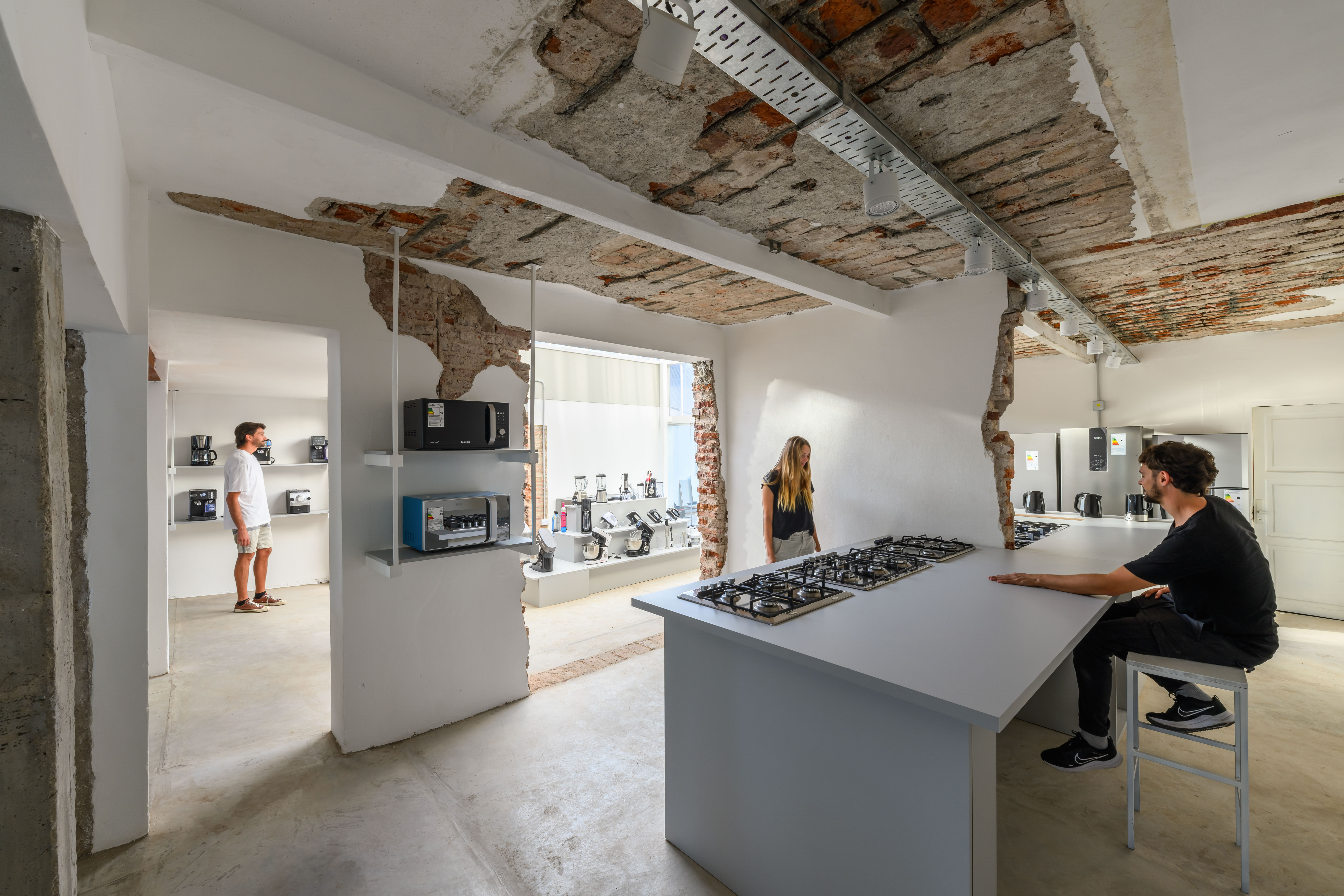
The project was conceived and executed in record time, with a limited budget. Even so, it manages to convey a sense of completeness, as if every decision had been carefully measured and precisely placed. SETarq and Fruto Arq not only succeeded in transforming an unused building, but also created an architectural statement on how to intervene with intelligence, sensitivity, and respect for the past.
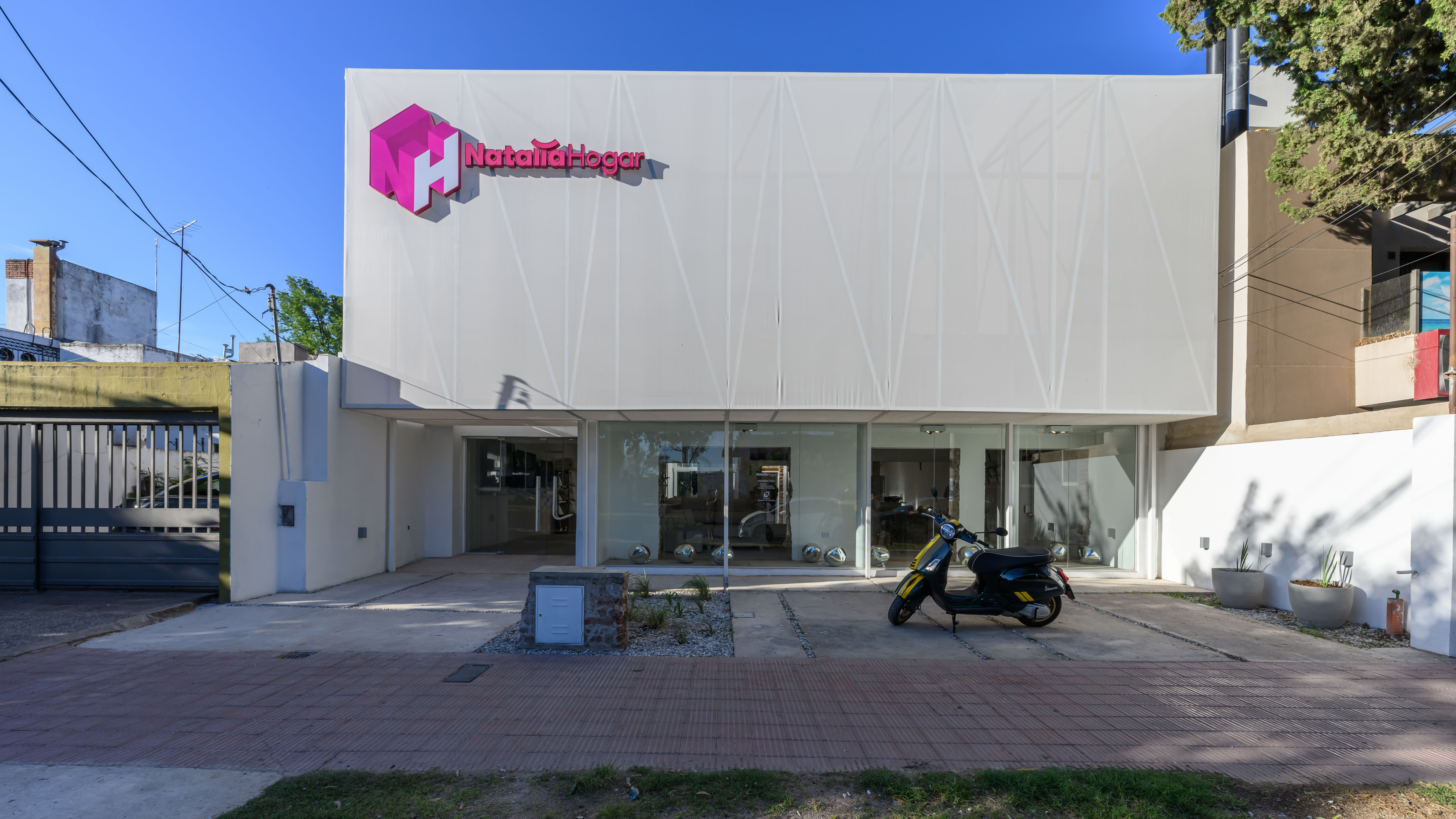
Natalia Hogar does not aim to be a monument or a grand statement. Rather, it is a project that finds beauty in what already exists and amplifies it with gestures that are simple yet deeply meaningful. The interplay between the old and the new is not one of layering, but of integration. In that harmony between memory and innovation lies the true strength of the project.